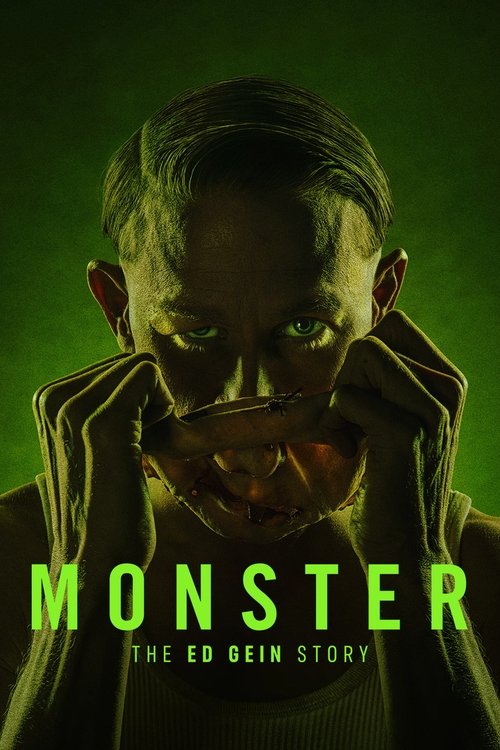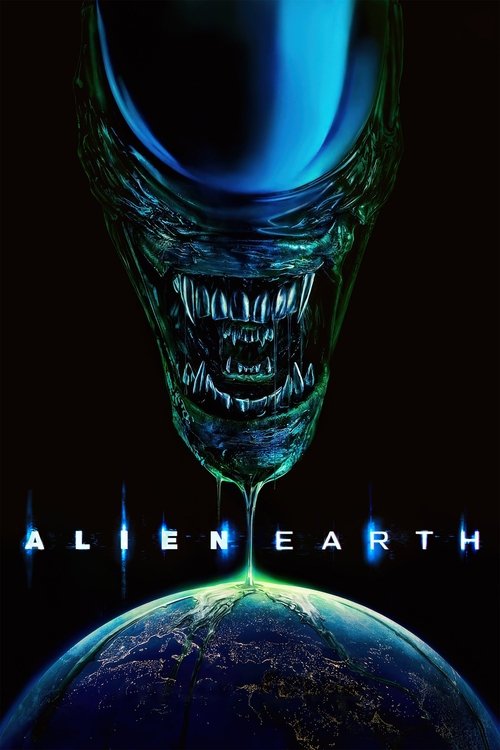
Ask Your Own Question
What is the plot?
The series "Happy Face" begins with Melissa Jesperson-Moore celebrating her daughter Hazel's birthday, establishing her family life and emotional state. Melissa is shown as a devoted mother and wife, but her past looms over her. Early scenes reveal that at age 15, Melissa discovered her father, Keith Hunter Jesperson, was the notorious serial killer known as the Happy Face Killer. This revelation shattered her world and set the stage for the series' exploration of her struggle to reconcile the loving father she knew with the monster he became.
Melissa's father, Keith, is introduced in prison, serving life sentences for multiple murders. Despite his incarceration, Keith attempts to maintain contact with Melissa, manipulating her with promises of closure for the victims' families. Melissa is initially reluctant but eventually agrees to visit him, driven by a complex mix of hope, anger, and the need for answers. Their prison visits are tense and emotionally charged, with Keith displaying charm and manipulation beneath a surface of menace.
As Melissa delves deeper into her father's crimes, she becomes involved in a case where an innocent man is on death row for a murder Keith committed. Melissa's investigation is meticulous and emotionally taxing; she reviews old footage, interviews witnesses, and follows leads that her father hints at during their conversations. She is determined to prevent a miscarriage of justice, even as it forces her to confront painful truths about her father's actions and the impact on the victims' families.
A key sequence involves Melissa, along with her friends Ivy and Tyler, reviewing footage related to a victim named Heather. They suspect Heather was with a school friend, Cody, shortly before her death. Melissa follows a lead to Cody's family bar, where she discovers the remains of Heather's guitar. There, she is confronted by Carl, Cody's father, who confesses that he killed Heather in a fit of rage triggered by Heather's song, which revealed their adulterous relationship. Melissa records Carl's confession on her phone. Carl then commits suicide, which closes the case and exonerates the innocent man on death row.
Meanwhile, Melissa's personal life is strained. Her husband Ben struggles with the danger surrounding their family, and at one point, he arranges for Keith to be killed in prison. However, Ben's attempt to cancel the hit fails to reach the assassin in time. Before the attack can occur, Keith suffers a heart attack and collapses, narrowly escaping the assassination attempt. Melissa visits Keith in the hospital, confronting him about his false confession to Heather's murder. Keith claims he confessed to boost Melissa's public profile, which leads Melissa to sever their relationship permanently.
Throughout the series, Melissa faces public scrutiny and personal attacks, including an op-ed revealing she had an abortion at 15, which shakes her deeply. She and Ivy find a church where the pastor remembers Keith visiting with his son Shane around the time of Heather's murder, adding layers to the investigation and family dynamics.
In the final episodes, Melissa reconciles with her daughter Hazel and her friend Hazel, finding some peace amid the chaos. She appears on a true crime television show hosted by Dr. Greg, announcing she will headline a new segment focused on true crime stories, signaling her commitment to advocacy and education about the impact of serial crimes on victims and families.
The series ends with a phone call from Keith to Ben, revealing Keith knows about the assassination attempt, leaving an ominous note about the ongoing threat he poses despite imprisonment. This final moment underscores the unresolved tension and the lasting scars left by Keith's crimes on everyone involved.
What is the ending?
The TV show Happy Face (2025) ends with Melissa Reed uncovering the true killer of Heather Richmond, freeing an innocent man on death row, and coming to terms with her father's horrific legacy. The finale, titled "The Star," resolves key plot lines but leaves a small ambiguous hint that the conflict may not be fully over.
Expanded narrative, scene by scene:
The episode opens with Melissa digging deeper into the murder of Heather Richmond, a key unresolved case linked to her infamous serial killer father, Keith Hunter Jesperson, aka the "Happy Face Killer," who had confessed to multiple murders signed with smiley faces in the 1990s. Melissa wrestles with her painful history and the shadow of Keith's crimes as she investigates.
As the story unfolds, Keith surprisingly confesses to a ninth murder he says he committed, but he refuses to release any details unless he meets Melissa in person. This forces Melissa to confront her traumatic past and visit Keith in prison. Their tense encounter is laced with emotional pain, as Melissa confronts Keith about his crimes, learning more about his manipulative nature and the ways he tormented his family, including selling private information about Melissa's abortion to the press.
Parallel to this, Melissa and Ivy Campbell, a producer from Melissa's daytime TV show, work to prove the innocence of Elijah, a man on death row for Heather's murder. They discover that all the forensic evidence tying Elijah to the crime has been destroyed, complicating the case against him. Despite a plea deal offering Elijah a reduced sentence, he rejects it, holding out for complete exoneration.
In a pivotal moment, Keith reveals the location of the murder weapon he used on Heather. Melissa retrieves the wrench and sends it for DNA testing, hoping this will finally clear Elijah's name. However, the DNA testing is inconclusive due to missing evidence, underscoring the systemic failures surrounding the case.
Meanwhile, Melissa reconciles with her brother Shane, as they admit their shared guilt for not stopping Keith earlier. Shane admits to saving Keith from a suicide attempt before Heather's murder, adding layers to their family's trauma. Melissa also confronts Keith with the truth that she was a victim of rape, like his other victims, forcing a moment of brutal honesty between father and daughter.
Towards the end, Melissa decides to let go of her father's legacy and embarks on a new, more meaningful career path, moving away from the shadow of Keith's crimes. Hazel, another character connected to the story, ends up better off, though viewers are unsure if she deserves it. The potential death of Keith is hinted at but ultimately left ambiguous, suggesting his hold over Melissa and her family may linger in unexpected ways.
The final scene leaves Ben, Melissa's partner, embarrassed as Keith's torment seems to continue, hinting subtly that the family's struggle with Keith's shadow might not be fully resolved. This scene adds a note of ambiguity and the possibility of future story developments.
Overall, the ending of Happy Face ties up major mysteries, especially the truth about Heather's murderer and Elijah's innocence, while exploring themes of trauma, family guilt, and letting go of a dark past. The narrative presents a detailed, scene-by-scene resolution that balances closure with a hint of ongoing tension and complexity.
Is there a post-credit scene?
What is the relationship between Melissa and the Happy Face Killer in the show?
Melissa Jesperson-Moore is the daughter of Keith Hunter Jesperson, the serial murderer known as the Happy Face Killer. She discovered this fact when she was 15 years old, which deeply impacts her life and the story's progression.
How does the show portray the interaction between Melissa and her father, the Happy Face Killer?
The show depicts a tense and unsettling dynamic where the Happy Face Killer reaches out to Melissa, offering new information about an alleged ninth victim in exchange for a meeting. Melissa struggles with the decision but is encouraged by her boss to confront her father, leading to emotionally charged encounters that explore their toxic and manipulative relationship.
Who is the ninth victim mentioned by the Happy Face killer, and what is the significance of this revelation?
The Happy Face killer claims there are actually nine victims instead of eight and offers to reveal the identity and location of the ninth victim's remains if Melissa meets him in prison. This revelation is significant because it adds a new dimension to the case and forces Melissa to confront her father and the truth about his crimes.
What is the nature of the relationship between Melissa and her boss Ivy, and how does Ivy influence Melissa's decisions?
Ivy, Melissa's boss, encourages her to face her father and the truth about his murders rather than run from it. Ivy's insistence plays a crucial role in Melissa's decision to meet with her father in prison, despite her own fears and reservations.
How does Melissa's confrontation with Keith Hunter Jesperson, the Happy Face killer, unfold in the series?
Melissa's first meeting with her father in prison is described as unsettling. During this confrontation, Keith claims he lied in his confession and offers new information about his victims, putting pressure on Melissa to engage with him despite her internal conflict.
Is this family friendly?
Based on reviews and summaries, Happy Face (2025) is not considered family friendly and is not recommended for children or highly sensitive individuals.
Potentially objectionable or upsetting elements include:
- Graphic Descriptions of Violence: Although violent acts are not shown on screen, they are described in explicit detail by characters, including descriptions of murder, rape, and disposal of bodies.
- Strong Language: The series includes harsh profanity, such as multiple uses of the f-word and other expletives.
- Emotional Distress: Themes of trauma, family secrets, and psychological manipulation are central to the plot. Characters experience significant emotional distress and ethical dilemmas.
- Mature Themes: The show examines the impact of having a serial killer as a parent, as well as the moral complexities of true crime fandom. These topics could be upsetting for children or sensitive viewers.
- Psychological Manipulation and Uncomfortable Scenarios: There are instances where characters feel pressured or manipulated, which may be distressing for some audiences.
Summary:
Happy Face (2025) contains mature content and is best suited for adult audiences. Parents should exercise caution and consider the emotional maturity and sensitivity of their children before allowing them to watch.
Does the dog die?
For the TV show Happy Face produced in 2025, there is no available information indicating that a dog dies in the series. The show focuses on a true crime drama involving a manipulative serial killer and his daughter, Melissa, and does not appear to feature any significant subplot involving a dog or its death in the main storyline or reviews provided. The search results about dogs dying pertain to other unrelated TV shows and movies, not Happy Face (2025).
Therefore, based on the current information, the dog does not die in the 2025 TV series Happy Face.


























